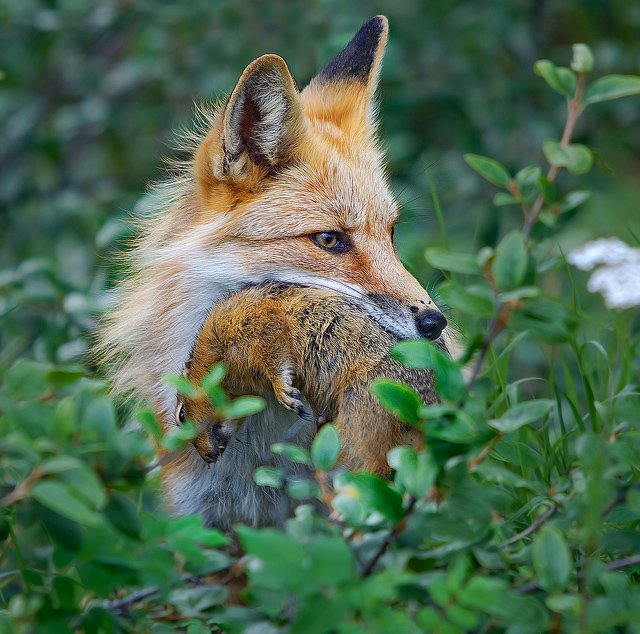
Whenever I speak with our farmers, their resident Red Fox most always comes up…that is, the fox’s relationship with their chickens. So here is a bit of history to help you understand your Red Fox and how you can live and farm well with them.
When the Europeans came to the American continent, Europe had long before eradicated all the large predators like wolves and bears. The ones that remained were relegated to remote mountain areas like the Alps and Pyrenees. As we know, from our history, the settlers swiftly eradicated the large carnivores from the eastern United States, but the fox remained.
Because no animal husbandry practices were used to protect the farmer’s chickens and other livestock, the fox took advantage of these easy meals. Those that were caught doing so were simply shot. Those particular foxes did not learn anything. But those that did get away with it, taught their kits that this was their food, and how to procure it. So from generation to generation the vixen has passed down to her kits this way of life.
As a result, farmers have lost many chickens over the past few centuries.
FAST FORWARD TO TODAY~
Please look at the photo above. This is who we want our foxes to eat ~ their wild prey. Our foxes are NOT playing their important role on the ecosystem of your farm if they are killing your chickens! And because our foxes have gotten in to this bad habit over the centuries, sometimes it is very challenging to let them know that it will be very dangerous for them if they try it on your farm.
And that danger is not to be shot, but being challenged by a guardian dog, Llama or Donkey, or being zapped by an electric fence. If you have an insistent fox intent on taking your chickens,know that you need to be very consistent in your animal husbandry practices. You MUST keep them secure in their coop at night, and during the day they will need a guardian and electric fencing.
If you “stick with it” your fox will finally get what you are trying to tell them: “There is NO easy food here for you!” Then keep that fox on your farm, because they understand what you are saying, and will pass it on to their kits.
Again, this is an important part of the Farming of the Future ~ You need to know your carnivores, look at your farm from their point of view, and learn how to speak to them in a language they understand. Farming at its Best!
Contributed by Geri Vistein, Carnivore Conservation Biologist in Maine

